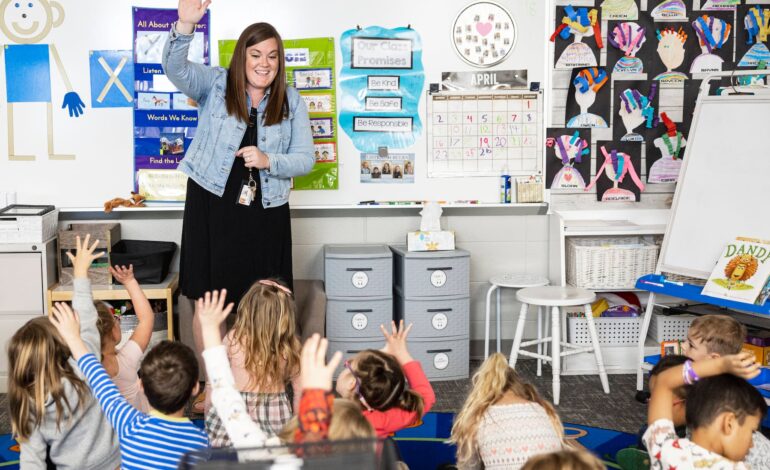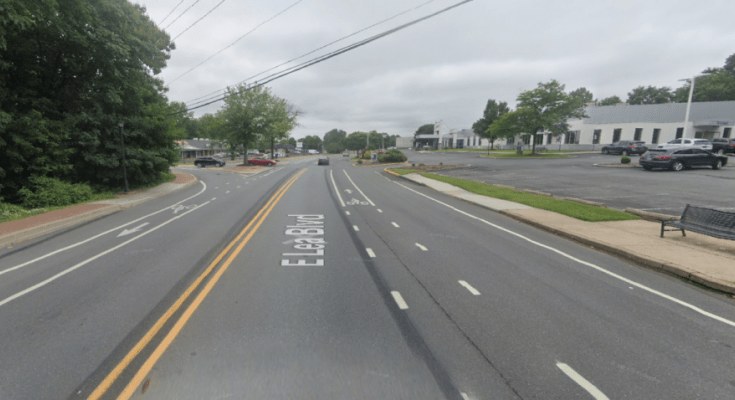Michigan Schools Face Morale Drop as Blue Ribbon Program Ends

The U.S. Department of Education announced the discontinuation of the National Blue Ribbon Schools program on August 29, 2024, a decision that has left educators in Michigan feeling demoralized. The program, established in 1982, recognized outstanding public and nonpublic schools across the nation for their academic excellence. For many school leaders, this award symbolized years of hard work and dedication, making its abrupt end even more impactful.
Superintendent Stephen Seelye of Pellston Elementary School, which won the prestigious award in 2024, expressed deep disappointment over the program’s closure. His school, part of Pellston Public Schools, was one of only 12 institutions in Michigan to receive the Blue Ribbon designation that year. “This is the pinnacle of my career so far,” Seelye stated, reflecting on the pride and recognition the award brought to his school community.
The Blue Ribbon program served as a beacon of excellence, inspiring schools to strive for high academic standards. Seelye noted that the award provided not just recognition but also a platform for schools to share their successes with others. This recognition often translated into increased interest from families looking to enroll their children in high-performing districts.
The decision to end the program aligns with the Trump administration’s ongoing efforts to reduce the federal government’s role in education. According to a letter from the Department of Education, the move aims to return educational authority to the states, allowing them to design their own programs that align with local priorities. This shift has raised concerns among educators about the diminishing federal support for public education.
Superintendent RJ Webber from Northville Public Schools echoed these sentiments. After completing a rigorous application process for the Blue Ribbon award, he learned that the program would no longer continue. “It leaves us all wondering, from a federal government level, is there a care and concern for public education?” Webber remarked. His school was set to celebrate its achievement, only to face the disappointment of canceled recognition.
The National Blue Ribbon Schools program has historically fostered collaboration between state and federal education systems. The program’s closure may hinder the recognition of excellence at the local level, according to many educators. Superintendent Steve Matthews of Rockford Public Schools, whose Meadow Ridge Elementary School received the award in 2024, stated that the program not only validated the efforts of teachers and administrators but also motivated schools to improve.
Despite the lack of federal recognition, the Michigan Department of Education (MDE) plans to celebrate the schools that achieved Blue Ribbon status before the program’s end. Bob Wheaton, director of public and governmental affairs at MDE, affirmed the importance of acknowledging schools that demonstrate academic excellence. “Schools have attained Blue Ribbon designation due to the hard work of educators, students, and parents,” Wheaton stated.
Additionally, MDE is exploring the possibility of establishing a new state-level recognition program to honor outstanding schools. This initiative aims to fill the gap left by the federal program and ensure that local achievements are still celebrated.
While the Blue Ribbon Schools program offered a unique platform for recognition, some educators have pointed out that the true measure of success lies in the everyday impact they have on students’ lives. Superintendent Glenn Maleyko of Dearborn Public Schools highlighted that the award served as a motivating factor for schools striving for excellence. With six Blue Ribbon awards in the past eight years, his district has seen positive outcomes in both student enrollment and teacher recruitment.
The closing of the Blue Ribbon program represents a significant shift in the landscape of educational recognition. School leaders, while committed to their mission of educating students, have expressed concerns about the lack of external validation for their efforts. As they navigate this new reality, the hope is that states can effectively implement their own recognition initiatives that honor local achievements and foster a culture of excellence in education.






